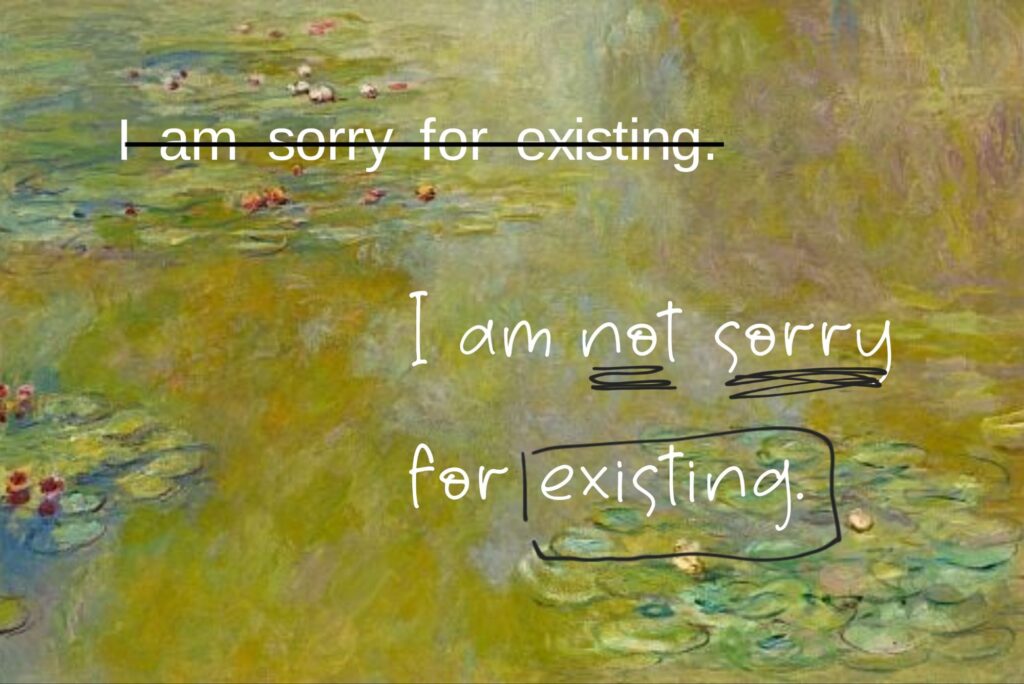How many times must I apologize for simply existing?

Somewhere along the way, I learned that my presence was something to be excused. That my voice was something to be softened. That my feelings were something to be hidden beneath layers of “I’m sorry”—as if breathing too loudly was a crime, as if needing space was a burden.
I apologize when I speak, when I ask, when I exist too noticeably. I say “sorry” when someone bumps into me, when I take too long to gather my thoughts, when I dare to be anything but invisible.It spills from my lips like a reflex, like an instinct I never questioned, like a habit that has become part of my being.
But why? Why must I shrink myself down to be more acceptable? Why must I offer apologies for things that do not require them?
Trauma teaches you that safety is found in being small. In making yourself less. In ensuring that your presence does not inconvenience anyone. Because if you are quiet enough, agreeable enough, easy enough—then maybe they won’t leave. Maybe they won’t hurt you. Maybe they’ll let you stay.
But the truth is, I was never meant to be this small. I was never meant to exist in a constant state of apology.
I am learning now that I do not have to be sorry for taking up space. For having emotions that are sometimes messy, sometimes raw, sometimes too much. I do not have to apologize for wanting to be heard, for needing reassurance, for asking questions that make people uncomfortable.
I do not have to apologize for healing in ways that do not make sense to others.
So, here’s a different phrase: I am not sorry.
I am not sorry for existing. I am not sorry for feeling. I am not sorry for being exactly as I am, no longer asking for permission to take up space.
— Sadia Hakim // Letters Unsent
If you want to explore more on why people were never my need—but perspectives, souls, and hearts were—you can read my thoughts here. In this piece, I reflect on the kind of connections that truly matter: the ones that go beyond mere presence, the ones that make solitude feel like a choice rather than a default. It’s about finding comfort in those who nurture growth, who make existence feel like a blessing, and who turn shared silences into something meaningful.
Thank you for reading!

